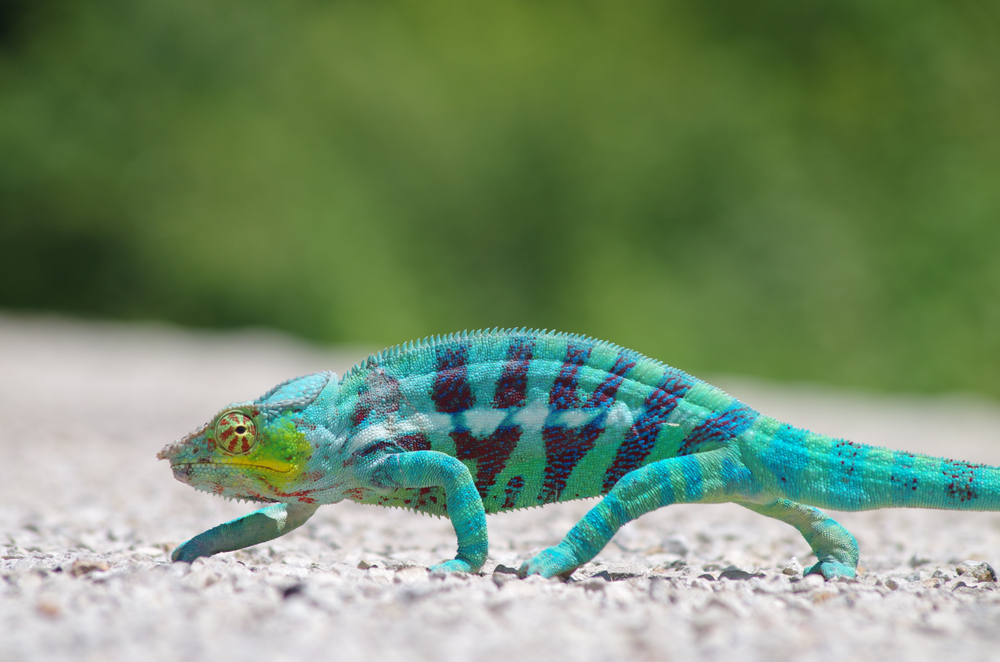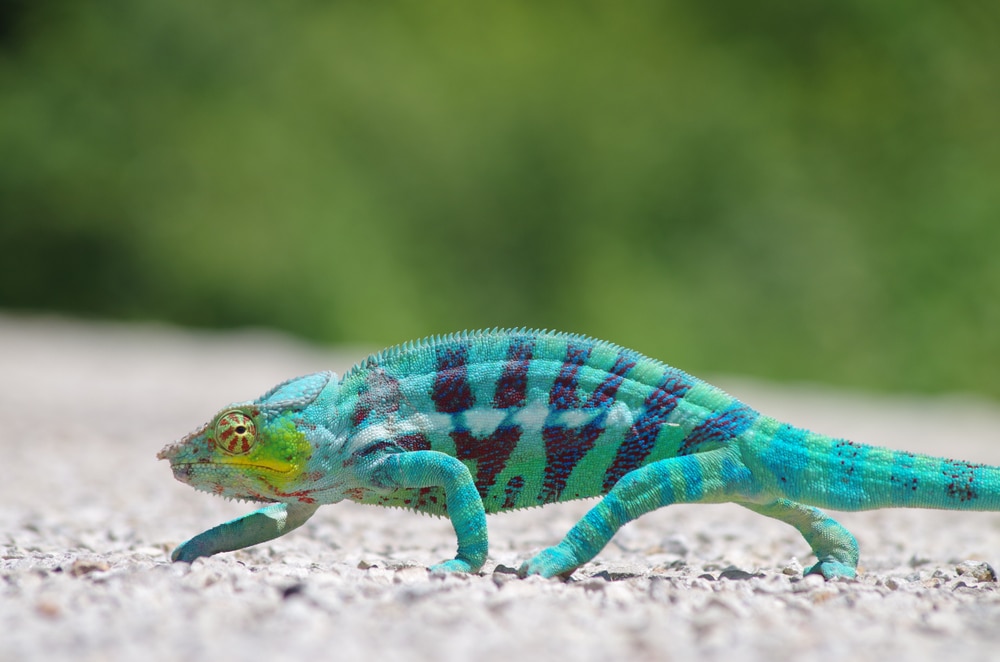Can I overdose my chameleon on calcium/vitamin supplements if using a full sunlight lamp for 12 hours a day? Should I switch to a calcium supplement with no D3?
I recently purchased a baby nosy be panther chameleon. Can I overdose it on calcium/vitamin supplements if using a full sunlight lamp for 12 hours a day? Should I switch to a calcium supplement with no D3 (if I can find one)?
Many thanks.
It is admirable you want to ensure that you are providing your new chameleon with the correct nutrients. It is possible to overdose any pet on vitamins and/or minerals. Unless a reptile has the appropriate ultraviolet spectrum to make vitamin D3 in the body, it won’t be able to properly absorb and utilize calcium given in any form.
There are four fat-soluble vitamins, and these are vitamins A, D, E and K. These vitamins can be overdosed because the body stores them in fatty tissues. Other vitamins — the water-soluble ones — are usually much safer to give. They are excreted, usually in the urine, and are not stored, thus they do not build to toxic levels. The nutrients often involved in intoxication from oversupplementation are calcium, selenium, vitamin A and vitamin D3.
There are many questions about vitamin D because both plant and animal sources of this vitamin exist. When researching vitamin supplementation, always check to see if the supplement contains cholecalciferol, vitamin D3 or ergocalciferol, which is vitamin D2. Ergocalciferol is derived from plants and is cheaper to produce than cholecalciferol, which is derived from animal sources. Vitamin supplements that don’t specify which type of vitamin D is in them usually contain ergocalciferol, which may not be as effective.
Calcium supplements that do not contain vitamin D or other additives are available. One supplement is actually Tums, an antacid for humans that is nothing but calcium carbonate. This is an inexpensive and effective calcium source for many species of animals. They are fruit-flavored and easy to administer.
I usually recommend gut-loading the insects to feed to lizards, using a commercial gut-load product. Dusting the insects should not be necessary as long as they are gut-loaded with an appropriate product. If you use a full-spectrum light with the correct UVB output, place it at the correct distance, make sure it is not filtered through glass or plastic, and replace it as directed by the manufacturer, your chameleon will probably not need a vitamin D supplement. However, like with all reptiles, I recommend you discuss supplementation with your herp vet. Every herp has its own requirements, and it is unwise to make blanket statements about nutrition.
Just be aware that it is possible to oversupplement any creature, and the individual animal has its requirements. Deciding on appropriate and correct supplementation should be taken seriously and should optimally be collaboration between the herp owner and the herp veterinarian.

shutterstock/jan czemy
Appropriate and correct supplementation should be taken seriously and should optimally be collaboration between the herp owner and the herp veterinarian.


